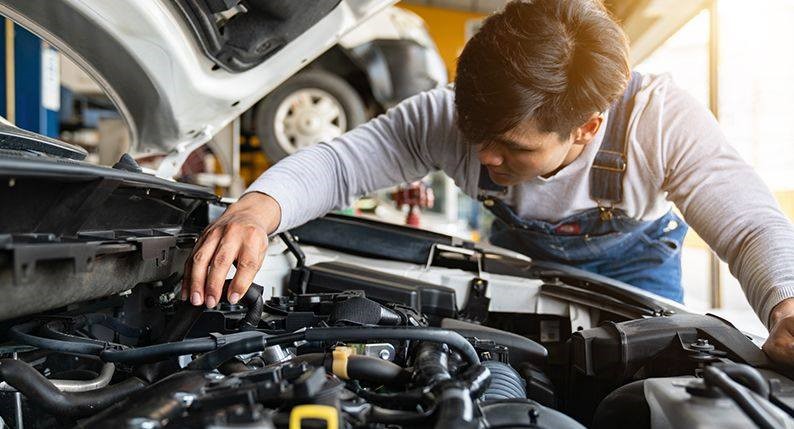All Categories
Featured
Brakes are probably the most vital safety and security function of any car. Without reliable brakes, even the most powerful car can end up being a risk on the road. That's why routine brake examinations are a need to for ensuring your lorry quits when you require it to. Following an appropriate brake examination timetable can not just keep you risk-free but also assist you avoid expensive repairs. Below's a detailed overview on how to correctly evaluate your brakes and what to look out for.
- The Relevance of Normal Brake Inspections. Brakes undergo continuous deterioration with every usage, whether you're driving at high rates on the freeway or travelling through city streets. With time, brake pads, rotors, and other components put on down, which can influence braking performance. Without regular evaluations, you might not notice the steady decline in performance until it's far too late.
Routine brake inspections allow you to catch problems early, making certain that your brakes stay receptive, trusted, and safe. Timely examinations can additionally conserve you cash by attending to small problems before they come to be expensive repair work.
- Usual Signs That Your Brakes Required Attention. While routine brake assessments are very important, there are some indication you can watch out for to understand when it's time to set up a check-up:
Squealing or Grinding Seems: Shrill squeaks or grinding sounds when applying the brakes are usually signs that your brake pads are broken and need substitute. Resonance or Pulsation: If you really feel resonances in the steering wheel or the brake pedal, it can suggest warped blades, which might require resurfacing or changing. Soft or Squishy Brake Pedal: If the brake pedal really feels unusually soft or squishy, there might be air in the brake lines or an issue with the master cyndrical tube. Drawing away: If your vehicle pulls away while stopping, this can be triggered by uneven brake pad wear or a problem with the brake liquid. Increased Stopping Range: If it takes longer to stop than usual, it might suggest that the brake pads are worn, the fluid is reduced, or the blades are damaged. If you observe any of these signs, it's best to have your brakes examined instantly.

- Trick Components Checked Throughout Brake Inspections. Throughout a brake assessment, a specialist will certainly examine a number of critical parts of the braking system to make certain whatever is working correctly. Below are the vital elements involved:
Brake Pads: The most usual reason for bad stopping performance is damaged brake pads. Examining the density of the pads is a concern throughout every inspection. Brake Rotors: Rotors must be smooth and devoid of grooves or fractures. Any significant damages to the blades might cause jeopardized braking effectiveness and irregular pad wear. Brake Liquid: Low or infected brake liquid can harm stopping efficiency. The service technician will inspect the fluid levels and quality and replace it if essential. Brake Lines and Hoses: Brake lines need to be devoid of leakages or cracks. Any type of damages to the lines can lead to loss of brake fluid, resulting in brake failing. Brake Calipers: The calipers use stress to the brake pads. They need to be checked for signs of wear or leaks to ensure they are working correctly. Routinely examining these elements helps keep your brake system in peak condition, permitting you to stop your cars and truck safely and successfully.
- Exactly how Usually Should You Have Your Brakes Inspected? The basic recommendation is to have your brakes checked a minimum of when a year or every 12,000 miles, depending on your driving practices. Particular driving problems might require more frequent examinations:
Rush Hour: If you commonly drive in stop-and-go web traffic, your brake pads will put on down quicker. Mountain Driving: Driving on steep roadways needs even more frequent braking, which can cause your brakes to wear quicker. Towing or Hauling Heavy Loads: If you regularly carry hefty lots, your brakes will experience much more stress and anxiety and require more constant evaluations. If you see any of the warning signs stated earlier, do not wait on the next scheduled examination-- have your brakes examined immediately.
- The Effects of Disregarding Brake Inspections. Overlooking routine brake assessments can lead to major effects. A falling short brake system might result in minimized quiting power, which boosts your danger of mishaps.
In the worst case, driving with damaged brakes can result in complete brake failure, putting you and various other drivers in danger. Normal brake inspections are a small investment that can save your life and avoid expensive fixings.
- Final Thought: Remain Safe with Regimen Brake Inspections. Brakes are not something you intend to take possibilities with. A trusted braking system is necessary for secure driving, and normal brake evaluations are a straightforward method to make sure that your cars and truck stops when you require it most. By staying on top of brake maintenance, viewing for advising signs, and having your brakes checked at the recommended intervals, you'll protect both your lorry and your safety and security.
Don't wait until your brakes begin to stop working-- timetable normal brake evaluations and keep your lorry in ideal condition for many years to come.
Latest Posts
When to Tell When Your Car Needs Professional Vehicle Service at Montclare Auto Repair
Explore WyHy FCU – Top Benefits for Your Money Goals
Trustworthy Business Roof Services by Weathercraft
More
Latest Posts
When to Tell When Your Car Needs Professional Vehicle Service at Montclare Auto Repair
Explore WyHy FCU – Top Benefits for Your Money Goals
Trustworthy Business Roof Services by Weathercraft
